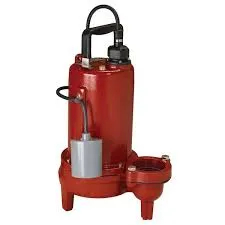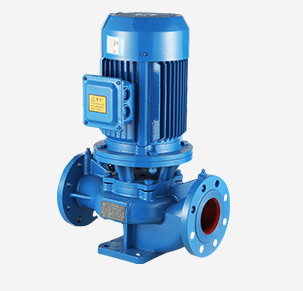TEL:
+86 13120555503
English
- Afrikaans
- Albanian
- Amharic
- Arabic
- Armenian
- Azerbaijani
- Basque
- Belarusian
- Bengali
- Bosnian
- Bulgarian
- Catalan
- Cebuano
- Corsican
- Croatian
- Czech
- Danish
- Dutch
- English
- Esperanto
- Estonian
- Finnish
- French
- Frisian
- Galician
- Georgian
- German
- Greek
- Gujarati
- Haitian Creole
- hausa
- hawaiian
- Hebrew
- Hindi
- Miao
- Hungarian
- Icelandic
- igbo
- Indonesian
- irish
- Italian
- Japanese
- Javanese
- Kannada
- kazakh
- Khmer
- Rwandese
- Korean
- Kurdish
- Kyrgyz
- Lao
- Latin
- Latvian
- Lithuanian
- Luxembourgish
- Macedonian
- Malgashi
- Malay
- Malayalam
- Maltese
- Maori
- Marathi
- Mongolian
- Myanmar
- Nepali
- Norwegian
- Norwegian
- Occitan
- Pashto
- Persian
- Polish
- Portuguese
- Punjabi
- Romanian
- Russian
- Samoan
- Scottish Gaelic
- Serbian
- Sesotho
- Shona
- Sindhi
- Sinhala
- Slovak
- Slovenian
- Somali
- Spanish
- Sundanese
- Swahili
- Swedish
- Tagalog
- Tajik
- Tamil
- Tatar
- Telugu
- Thai
- Turkish
- Turkmen
- Ukrainian
- Urdu
- Uighur
- Uzbek
- Vietnamese
- Welsh
- Bantu
- Yiddish
- Yoruba
- Zulu
Telephone: +86 13120555503
Email: frank@cypump.com
Feb . 17, 2025 12:28 Back to list
septic pump
Replacing a septic system pump can seem like a daunting task for any homeowner, but understanding the process and knowing what to look for can make a significant difference. This essential component in your septic system ensures that wastewater flows smoothly from your home, keeping your environment clean and sanitary. If you're thinking about replacing your septic system pump, here's an informative guide to walk you through the process, ensuring that you make an informed and confident decision.
During the replacement process, it's crucial to trust the materials used in the pump's construction. High-quality, durable products guarantee longevity, reducing the likelihood of future malfunctions. Most pumps are constructed from stainless steel, cast iron, or thermoplastic, each offering distinct advantages in terms of durability and resistance to corrosion. A knowledgeable service provider can assist in selecting the pump type best suited to your environmental conditions. Post-installation, regular maintenance is fundamental in extending the life of your septic system pump. Routine inspections and servicing from trusted professionals ensure that minor issues are identified early, preventing costly repairs or replacements down the line. Scheduling annual check-ups helps maintain optimal performance, providing peace of mind and sustaining the efficiency of your septic system. Investing in a quality septic system pump replacement not only prevents immediate household disruptions but also protects your property’s value and contributes to environmental preservation. With sewage systems playing a vital role in waste management, it's imperative that they function seamlessly. Clean water flow and effective waste removal serve as a testament to a well-maintained septic system. In conclusion, tackling a septic system pump replacement requires a balance of practical action and professional insight. By understanding the specific needs of your system, choosing the right pump, and ensuring regular maintenance, you're safeguarding your home and health while fostering a sustainable environment. So, when the time comes for a replacement, lean on the expertise of trusted professionals, and invest in quality products to secure the longevity and efficacy of your septic system.


During the replacement process, it's crucial to trust the materials used in the pump's construction. High-quality, durable products guarantee longevity, reducing the likelihood of future malfunctions. Most pumps are constructed from stainless steel, cast iron, or thermoplastic, each offering distinct advantages in terms of durability and resistance to corrosion. A knowledgeable service provider can assist in selecting the pump type best suited to your environmental conditions. Post-installation, regular maintenance is fundamental in extending the life of your septic system pump. Routine inspections and servicing from trusted professionals ensure that minor issues are identified early, preventing costly repairs or replacements down the line. Scheduling annual check-ups helps maintain optimal performance, providing peace of mind and sustaining the efficiency of your septic system. Investing in a quality septic system pump replacement not only prevents immediate household disruptions but also protects your property’s value and contributes to environmental preservation. With sewage systems playing a vital role in waste management, it's imperative that they function seamlessly. Clean water flow and effective waste removal serve as a testament to a well-maintained septic system. In conclusion, tackling a septic system pump replacement requires a balance of practical action and professional insight. By understanding the specific needs of your system, choosing the right pump, and ensuring regular maintenance, you're safeguarding your home and health while fostering a sustainable environment. So, when the time comes for a replacement, lean on the expertise of trusted professionals, and invest in quality products to secure the longevity and efficacy of your septic system.
Share
Next:
Latest news
-
Horizontal Split Case Pump with GPT-4 Turbo | High Efficiency
NewsAug.01,2025
-
ISG Series Pipeline Pump - Chi Yuan Pumps | High Efficiency, Durable Design
NewsAug.01,2025
-
Advanced Flue Gas Desulfurization Pump with GPT-4 Turbo | Durable & Efficient
NewsJul.31,2025
-
ISG Series Vertical Pipeline Pump - Chi Yuan Pumps | Advanced Hydraulic Design&Durable Construction
NewsJul.31,2025
-
ISG Series Vertical Pipeline Pump - Chi Yuan Pumps | Energy Efficient & Low Noise
NewsJul.31,2025
-
pipeline pump - Chi Yuan Pumps Co., LTD.|High Efficiency&Low Noise
NewsJul.31,2025










